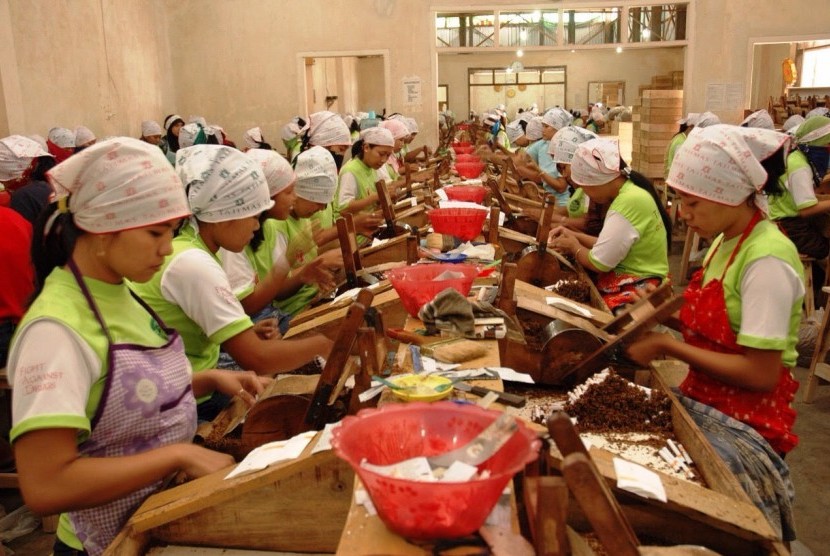REPUBLIKA.CO.ID, JAKARTA -- Indonesia has been experiencing de-industrialization in the past 10 years. It was the result of declining industrial contribution to the economy, according to an economic development institute.
"Industrial contribution to the economy is adversely declining," Bhima Yudhistira, an economist for the Institute for Development of Economics and Finance (INDEF), said here on Friday.
Yudhistira said the contribution of the manufacturing industry to the gross domestic product (GDP) has declined from 26 percent to 20 percent. "If the de-industrialization process continues to take place, national absorption of workers will be less than optimal," Yudhistira said.
He mentioned that for years, Indonesia relied on economic growth in sectors that absorbed the low labor force as a service sector. In addition to low absorption of manpower, the service sector's distribution of services is also concentrated in urban areas, despite the fact that more than half of Indonesians live in rural areas.
This differs from the manufacturing industry which has a high labor absorption capacity, and can be established in any place where a region has potential. "Ideally, the manufacturing industry is the mainstay sector, supported by the services, agriculture, and investment sectors," he said.
Yudhistira recommended a unification of views and effort among all stakeholders to restore the industrial sector as a driver for development. He cited the case of Batam, an area designed as an industrial center, as an example of industrial deterioration.
At least one factory in various industrial areas closes shop each year. Aside from industrial estates, deterioration has also been seen in the shipyard sector. Of 110 shipbuilders with a 250,000-strong workforce in 2014, only five activity shipbuilders remain in operation, with a total workforce of less than 22,000 people.
The cigarette industry has also been in decline, with 3,195 cigarette factories closing shop and at least 32,729 cigarette factory workers terminated from employment between 2006 and 2016. Almost all of the terminated workers were hand-rolled cigarette (SKT) workers.
The number continues to increase. The workers have no other skills, causing cigarette workers to be labeled as low-skill laborers who cannot easily perform other jobs.
Yudhistira also said the government must give incentives to employment-absorbing industries. Affirmative policies include the adoption of different or special kinds of tax as well as retribution taxes with rates lower than sectors with low labor absorption.


